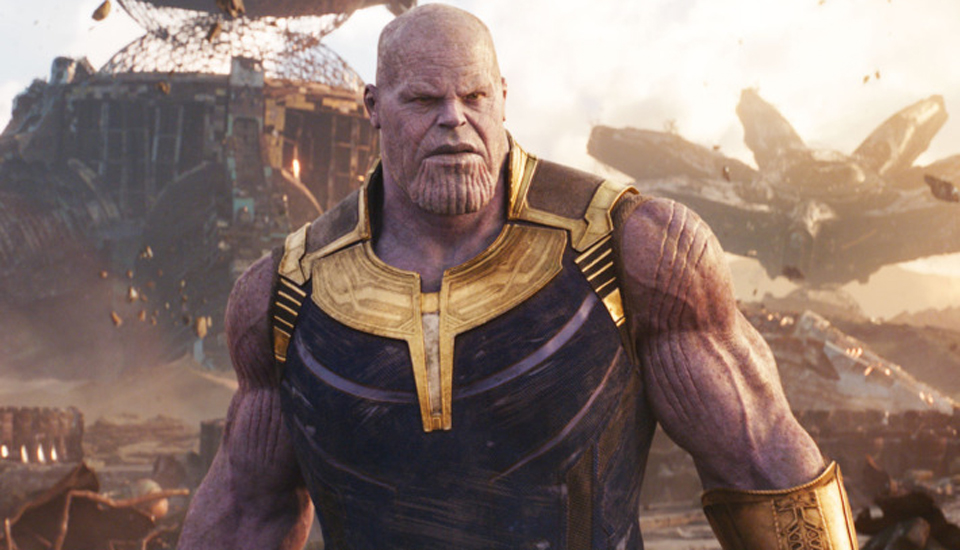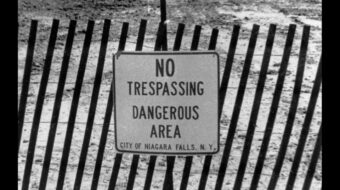
Marvel’s latest blockbuster Avengers: Infinity War opened Friday, April 27, and already broke records, scoring the biggest box office opening ever. Fans rushed to theaters to get a piece of the action—an intergalactic battle featuring all of Marvel’s greatest heroes. One key player, Thanos, made his official debut in the Marvel Cinematic Universe (MCU), awarding fans with the ultimate showdown we have all been waiting for.
Warning: Spoilers beyond this point.
To start, it’s worth noting that Infinity War wasted no time in offing some of Marvel’s most beloved characters. It was in those opening moments that the initial doubts I had about the film disappeared. The Russo Brothers, Anthony and Joseph, took on the bold directorial leadership that Infinity War deserved. They’ve previously worked on other Marvel projects, directing Captain America: Winter Soldier (widely regarded one of the best Marvel films to date) and Captain America: Civil War.
From the get-go, viewers are launched into an action sequence with vibrant cinematography and witty dialogue. Thanos is introduced straightaway, a brilliant choice on the part of the script writers, Christopher Markus and Stephen McFeely. The early entry of a major villain helps establish thorough character development and context.
In Infinity War, Thanos seeks to attain the Infinity Stones, which will give him total power over the universe—an authoritarian fantasy in the extreme. Each stone represents a different facet of power that he can use to attain his ultimate mission of universal domination. This differs slightly from the comic version; there, Thanos simply vied for the affection of Lady “Death”—a cosmic entity based on the personification of mortality.
In the film version, however, Marvel gives Thanos a different goal for his conquest: He sees himself as the only individual capable of resolving the universe’s supposed overpopulation issue—a neo-Malthusian savior. Thanos explains to his adopted daughter, Gamora, that his acts of genocide are “merciful” compared to the destruction of hunger and poverty that planets would experience otherwise.
Time and time again, various characters throughout the film plead with Thanos, insisting that he doesn’t have a right to decide who perishes. He remains relentless and resistant, as he witnesses his home planet, Titan, gradually die due to a lack of natural resources—an outcome which he now holds as a personal vendetta against reproduction.
Thanos’s solution: eliminate half of the MCU’s population by lottery. He reasons that this is a fair and merciful plan because both rich and poor alike would get a fair shot, and the rest of the population would have a chance to live in a world without the strife arising from fights over limited resources.
Thanos’s authoritarian ecology lacks all creativity. The complete powers of the Infinity Gauntlet are capable of manipulating time, space, energy, and a realm of other endless possibilities. One has to wonder: Why not create a reality where all beings have more than sufficient resources—is communist utopia in the Marvel universe possible?
Why was this never an option for Thanos? One might think that even his perverse sense of empathy might have strategized another solution besides mass genocide. For nothing in the MCU points to Thanos being unintelligent; in fact, being a victim of displacement himself, he expresses a range of thoughts on the social disparities of class struggle.
He spends much of the film lamenting the weight of his (seemingly) necessary decisions, yet he never bothers to explore any alternatives to annihilation. Could he have used the reality stone to double the amount of food on planets stricken with poverty? Or transport volunteers to a location with more natural resources? Might he not have conjured a universe in which the exploitation of both people and nature is ended in favor of planned development and cooperation? I suppose for action movies of this sort you still need a big battle to end things—good vs. evil and all that.
If Infinity War had ended with Thanos as the hero of a sustainable eco-socialist future, maybe it wouldn’t have sold as well at the box office, but I do wish the script writers would have better showcased Thanos’s critical thinking skills on this particular subject matter.
Nevertheless, the action made for great cinema, and the buildup to the final struggle between Thanos and the Avengers leaves you hanging off the edge of your seat. There was not a stagnant moment in the film, and even with the glaring plot hole around the endless possibilities the stones provided Thanos, he still remains the villain Marvel fans have been waiting for.
Studio executives have been extremely secretive about releasing the name of the Infinity War sequel, as they claim it could potentially serve as a spoiler. Many are left to wonder what’s next for the MCU. Post-credit scenes in Infinity War hinted to an upcoming Captain Marvel film (whom Brie Larson was recently cast as), which could mark the start of a new chapter for the superhero franchise. In the meantime, the fate of our heroes remains in limbo until the release of the untitled Avengers film in 2019.

MOST POPULAR TODAY

After months of denial, U.S. admits to running Ukraine biolabs

“Trail of Tears Walk” commemorates Native Americans’ forced removal

Hold the communism, please: SFMOMA’s Diego Rivera exhibit downplays artist’s radical politics

‘Warning! This product supports genocide’: Michigan group aims to educate consumers







Comments